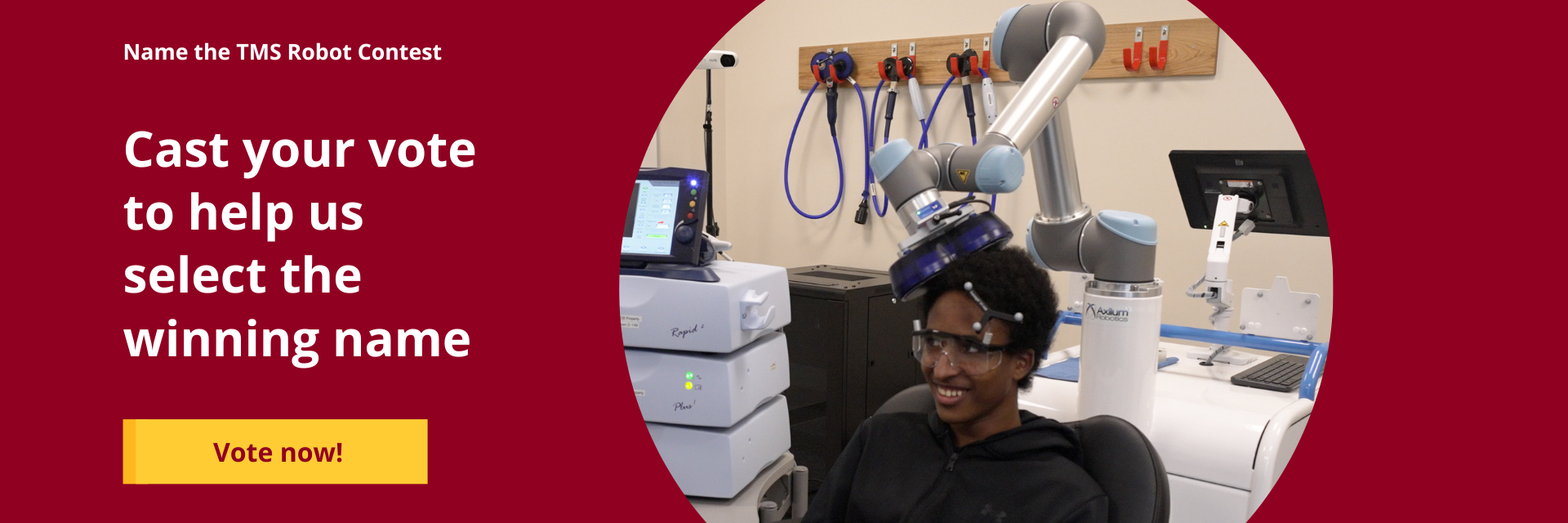The Synapse: Sept. 2022
The Impact of the First 1,000 Days
Through our partnership with The Itasca Project's First 1,000 Days Task Force, MIDB has been collaborating with Little Moments Count to ensure that their shareable resources like this newly launched employer toolkit are using the most current and innovative brain science. For example, we are helping them review materials to ensure that all content is scientifically accurate and uses the most up-to-date information in this ever-changing space.
Little Moments Count is a Minnesota-based statewide movement to help parents, caregivers, and the community understand the importance of talking, playing, reading, and singing with infants and toddlers for brain development. The Itasca Project is a cross-sector alliance of Minneapolis-St. Paul-area employers. In 2021, many University faculty contributed to the report, First 1000 Days: Invest When it Matters Most, which defines four major factors in optimal brain development during the first 1,000 days that offer opportunities for intervention: health and wellness, knowledge and skills, community resources and support, and social determinants of health. MIDB is partnering with the Itasca Project to advance their work in these four areas.
Earlier this month, MIDB hosted the Itasca First 1,000 Days Celebration Event where Jakub Tolar, dean of the Medical School and Itasca Project First 1,000 Days co-chair, gave opening remarks and highlighted the U and MIDB's commitment to continuing to partner on efforts related to early brain development. MIDB Co-Director Michael Georgieff shared how MIDB is working to promote and share brain science to benefit children and society.
MIDB is proud of our collaborations with these organizations whose missions closely align with ours to advance brain health from the earliest stages of development across the lifespan, and to support each person’s journey as a valued community member.
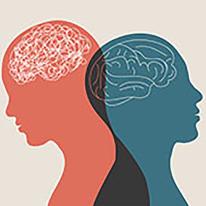
Small Grant Opportunity for Faculty: Root Causes and Interventions for Mental Health Problems
MIDB and the President’s Initiative on Student Mental Health are offering a joint funding initiative focused on the root causes, antecedents, and risk factors for mental health struggles as well as novel interventions. Faculty from across the U of M system who conduct work in this area are invited to apply. This program is designed to support new research teams and to promote novel ideas that have strong potential for advancing our understanding of mental health challenges and increasing the visibility of the U of M as a leader in this area. Letters of Intent are due by 11:59 p.m. on Oct. 15. Learn more and apply.
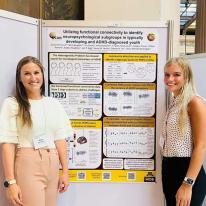
MIDB Well-Represented at International Flux Congress
Many MIDB members and students attended this month's Flux Congress in Paris, France. The annual event is held by the Flux Society, which aims to advance the understanding of human brain development by serving as a forum for professional and student scientists, physicians, and educators. MIDB Co-Director Damien Fair, PA-C, PhD, who serves as Flux Society's president, said, "Flux is a focus on family, junior investigators and fun, mostly fun. We had such an amazing showing from the Masonic Institute for the Developing Brain and the Institute of Child Development—a clear sign that the University of Minnesota is in a position to lead the field into the future.” Read more about MIDB at the Flux Congress.
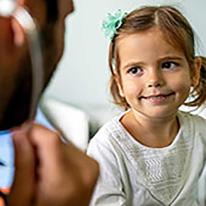
Where Clinical Care and Research Collide: Rare Diseases
All of our faculty members in Pediatric Neuropsychology provide clinical evaluations for our rare disease patients. Because many patients with rare diseases present with characteristics of autism spectrum disorder, faculty clinicians in the Autism & Neurodevelopmental Disorders Clinic also routinely work with this population. Our trainees, psychometrists, and other MIDB staff have become experts at working with patients with complex medical and neurological differences which can substantially affect areas like communication, sensory function, and mobility. Learn more about our work in rare diseases.

Closing the Gap in Autism Care for Girls
Autism symptoms can look different based on sex, according to Casey Burrows, PhD, LP. Researchers and clinicians have long thought that boys are more likely to have autism, a belief that may have led to many late or missed diagnoses in girls. Boys are four times more likely to be diagnosed with autism than girls in the U.S. Girls were also diagnosed almost a year later than boys on average, according to the 2016 National Survey of Children’s Health. Burrows and her colleagues at MIDB are working to change that. A new study led by Burrows and published in Biological Psychiatry this summer suggests girls may be just as likely to have autism-related concerns – and that changing how we assess autism symptoms can help every child get the support they need at an early age. Learn more about this study.

MIDB Artwork Spotlight: Pine Tree: INFINITY
Created in 2004 by artist Catherine L. Johnson, Pine Tree: INFINITY is now installed at MIDB as part of our permanent art collection. Donated by private collector Dr. Michael Spencer, the two original paintings depict an exploration of water, sky and earth, and are presented as echoes, reflective mirrors. Johnson describes the piece as, "the 'anchor' of the tree's trunk is the visual signifier shifting the waves of waters into boughs of a tree. The blue was to sound the blue of an early morning sky when clear lavender sings. I wanted the sense of freshness and possibilities: HOPE." Johnson, who lived at the Shriners Hospital for Children (the site which is now MIDB) from six months to 3 years old, says having her art hung at MIDB is "a poignant, powerful, and remarkable full circle for me."

Transition Through a Global Lens
The latest issue of Impact places the critical period of transition from school to adulthood in a global context. Articles include a call for educators around the world to link transition programs for youth with intellectual, developmental, and other disabilities (IDD) more closely to inclusive, real-world situations. People with IDD and their families tell their personal transition stories, and successful programs around the world share how they support young people as they move into the adult years. Learn more and join the conversation at a virtual forum on Oct. 3 where Impact authors will discuss the critical themes raised in the Transition in a Global Context issue.

Oscar Miranda-Dominguez, PhD, received a Young Investigator Award and a Best Poster Award at the 1st Annual Meeting of the Fetal, Infant, & Toddler Neuroimaging Group (Fit'NG) Conference held in Paris, France. Oscar's poster was titled: Big-data era tools to unveil the development of brain surrogates of emotion dysregulation.
Peter Grund, BA, (advisor: Monica Luciana) won the Best Poster Award at the 2022 Minnesota Symposium on Addiction, sponsored by the U of M Medical Discovery Team on Addiction. Peter's poster was titled: Greater temporal discounting is associated with higher alcohol consumption in adolescents and young adults.
Congratulations to MIDB member Julie Eisengart, MD and colleagues on their recent publication: Eisengart JB, Daniel MH, Adams HR, Williams P, Kuca B, Shapiro E. Increasing precision in the measurement of change in pediatric neurodegenerative disease. Mol Genet Metab. 2022 Sep 8;137(1-2):201-209. doi: 10.1016/j.ymgme.2022.09.001.
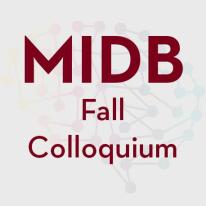
All are invited to MIDB's Fall Colloquium Series, held Thursdays, 3:30 to 5 p.m. in the Multipurpose Room, Annex. Upcoming events include:
- Sept. 29: Interprofessional Education - Opportunities for Synergy between MIDB and the Center for Interprofessional Health, presented by Sasha Zagaloff, PhD, LP
- Oct. 6: Sex-Based Measurement Bias in Assessment of Autism Symptoms, presented by Casey Burrows, PhD, LP
- Oct. 13: Targeting, Timing, and Tracking Intervention Following Prenatal Alcohol Exposure, presented by Jeff Wozniak, PhD, LP
- Urban Research and Outreach-Engagement Center (UROC) Agenda Grants: Proposals due Oct. 24
- Doris Duke Charitable Foundation Clinical Scientist Development Award: Pre-proposal applications due Nov. 19 (Note: If you are interested in applying, please contact Jonna Schnettler at [email protected])

